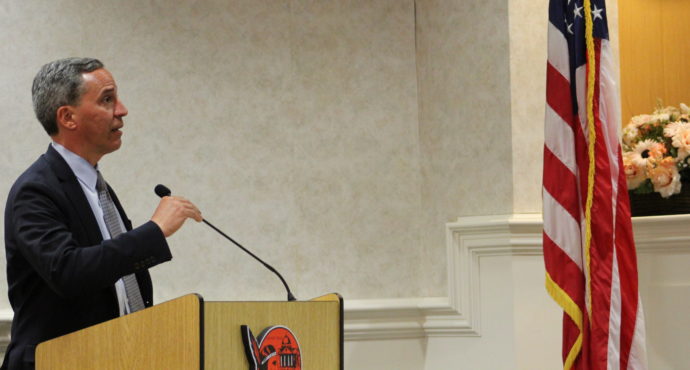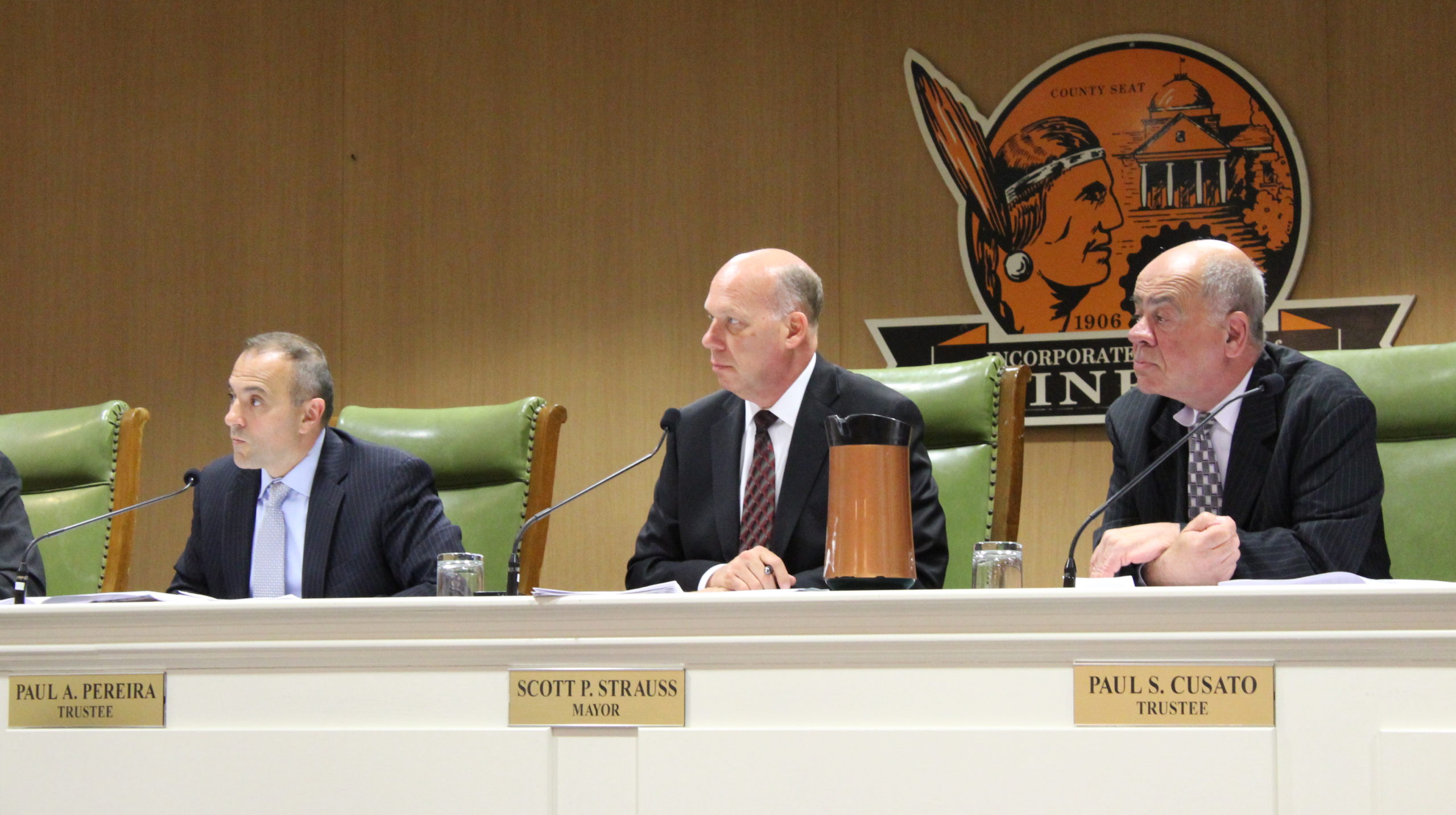Mineola’s proposed law to make aggressive panhandling illegal was deemed an attack on the poor by an attorney with the Empire Justice Center during Wednesday’s public hearing for the local law.
A couple of other meeting attendees, including a resident and former Mineola Mayor and state Sen. Jack Martins, spoke during the meeting showing support for the law.
The board did not make a final decision and will keep the hearing open for public comment for 30 days.
If approved, the law would require panhandlers to pay a fine or go to jail.
Maria DeGennaro, a staff attorney with the Empire Justice Center, said the law punishes the poor.
DeGennaro works with the Consumer Finance and Housing Unit of Empire Justice Center, and is the Long Island Regional Coordinator for its Anchor Partner Program for the Office of the New York State Attorney General’s Homeownership Protection Program.
“Punishing people for being homeless, and we believe this proposal comes … close to that description, is and should be seen as unacceptable public policy,” DeGennaro said.
DeGennaro noted that it’s safe to assume that most people begging are homeless or have little means.
A fine would represent an “unpayable debt” for those affected, and as interest accrues the debt could “be crippling if and when the person begins to get back on his or her feet,” DeGennaro said.
Mayor Scott Strauss said the board is not looking to criminalize the poor, but rather is looking to address certain acts.
“It doesn’t matter if they’re homeless or a billionaire who lost their ticket and can’t get on a train,” Strauss said. “It’s their act that we’re looking to address, not their status.”
While the law would apply to the entire village, the present panhandling issue is said to be a problem mainly by the train station.
In a previous interview, Strauss said the village’s panhandling problem is not bad, but the local law will be another tool police officers could use should they need it.
Martins said the proposed law “draws a line” and gives direction to the police.
“I would encourage the board not to be concerned about groups that come here dropping … buzzwords like attacking the poor,” Martins said. “Do what’s right for the residents of this village and commuters going into the city and want to get home safely and feel intimidated to empty their pockets to somebody for fear of being accosted.”
Marc Randazzo, a Mineola resident, said he sees the panhandlers at the station every day when he gets on at 7:53 a.m. and when he gets off at 6:47 p.m.

(Photo by Rebecca Klar)
The “professional” beggars are there only to “collect money to get their next fix and next high,” Randazzo said.
Randazzo said he supports the panhandling law, as well as suggested the board remove the pay phones at the station which he said the panhandlers use to contact their drug dealers.
Martins also said he’s seen Strauss and other members of the board call police in the middle of winter to try to help homeless men by the station seek shelter, and seen the men refuse the help.
Martins added that there are resources available from the county to help the poor.
“This is not about people not having access to resources, this is about people making a choice,” Martins said. “Yes, they have the ability, certainly if they want to be homeless. They do not have the right to harass, to accost or to hurt someone else or intimidate someone else into giving them money.”
Deputy Mayor Paul Pereira echoed Martins’ comments that services are available through the state and county, and added that the village is not the entity to provide those.
Pereira said the board agrees “1 thousand percent” with DeGennaro that the poor and homeless need access to affordable housing, and supportive programs.
“Who can disagree with that? Of course, that is what they need,” Pereira said.
He added that the proposed law does not say otherwise; it does not address homelessness or poverty, it addresses acts of aggressive behavior – which Pereira said “I think we agree should not be tolerated in civil society.”
However, the role of the village is to provide residents and commuters with a safe place to live, work and commute, Pereira said.
“I think this law addresses that in a humane way and in a fair way,” Pereira said.
During the meeting, the board also approved a request by Hiyam Hammad to create an Absolute Family Support Services center that would supply recreational services to children with special needs.
The center will be located at 185 Willis Ave.



